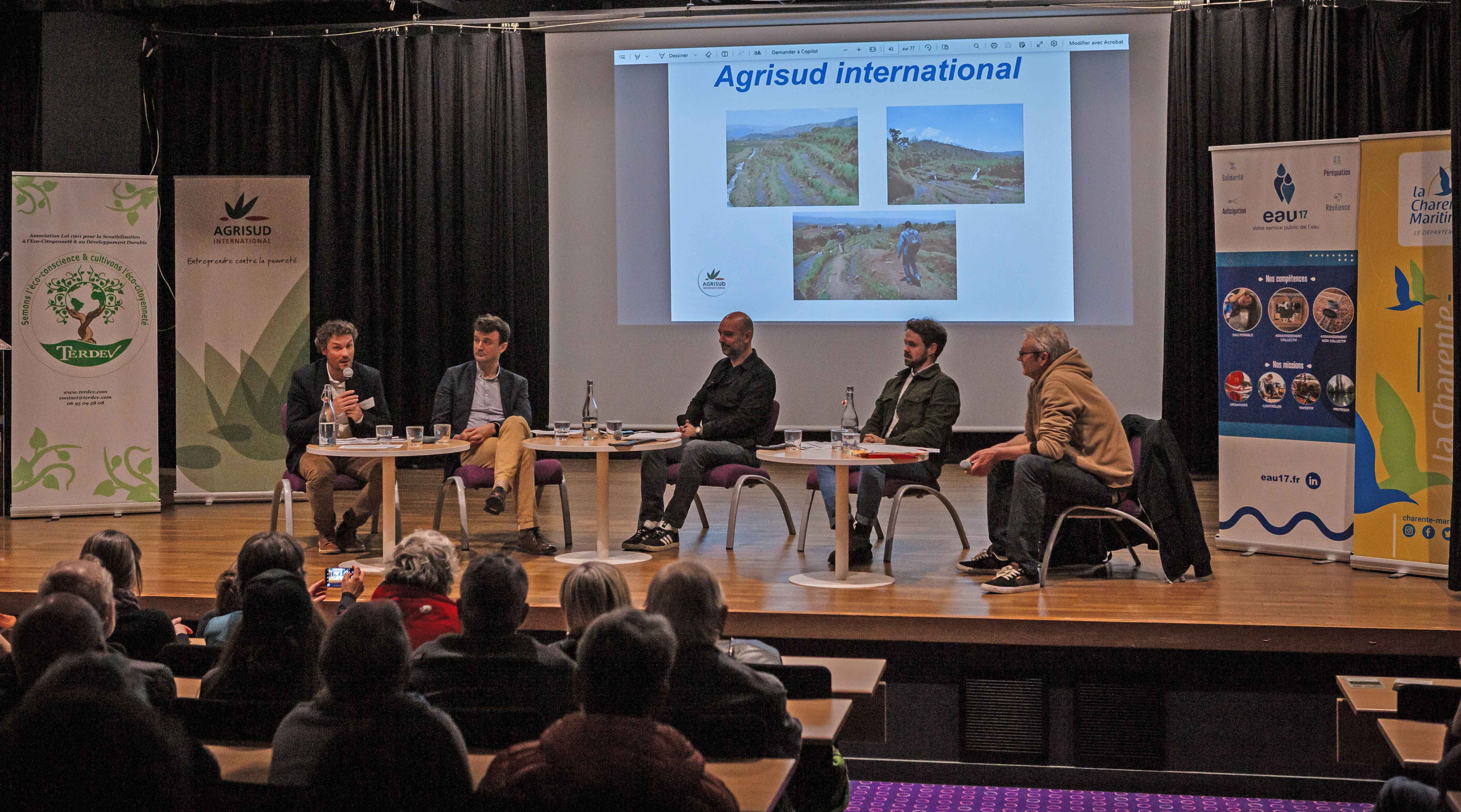-
Publié le : 09-04-2025
-
Type : Projet
On March 20, 2025, Agrisud took part in a round table organized by the Terdev association, as part of World Water Day. The event, which took place in the auditorium of the Saintonge agrocampus, brought together local and international players to discuss the relevance of cooperation in the face of water challenges.
Over a hundred participants from a wide range of backgrounds - high school students, committed citizens and the simply curious - took part in the discussions.
International cooperation: an effective support mechanism for sustainable water management.
Eva-Maria Dautry, Terdev's coordinator, opened the round table with a reminder of Sustainable Development Goal 6, which aims to guarantee access to water and sanitation for all. Local authorities and NGOs then shared their experiences.
The Département de Charente-Maritime and the town of Boffa presented their decentralized cooperation program to strengthen local governance and improve access to drinking water in this locality in the Republic of Guinea. The NGO Initiative Développement presented its work in Chad on water networks with the support of local user associations.
Agrisud International spoke of the need for integrated management of water resources (“IWRM” approach). Its remarks were based on the experience developed in Madagascar over the last ten years as part of the Eaurizon Program, the fruit of decentralized cooperation between the Haute-Matsiatra Region and the Métropole de Lyon. The aim is to sustainably improve living conditions for local populations by strengthening water access services while preserving natural resources.

Cultural aspects, governance and citizen participation: three determining factors to be taken into account.
Water is not just a resource: it also has a strong cultural dimension, influencing its management and use. Taking these representations into account is essential if actions are to be tailored to local conditions.
In Madagascar, water is essential for growing rice, a staple food. It is sometimes regarded as an intergenerational inheritance. Modifying water systems without taking this into account can lead to strong local resistance.
In addition to the technical aspects, sustainable management of the resource requires organizational modalities (governance) and citizen mobilization.
In Guinea, Charente-Maritime Coopération stresses that the establishment of a system of collection and charges is essential to the long-term efficiency of water networks. This is also the position defended by Initiative & Développement, which puts forward a strategy centered on Water Users' Associations (AUEs) and their private delegates, in order to structure effective and sustainable local governance.
After presenting the principles of IWRM, Agrisud illustrated its implementation in the field in Madagascar. Since 2014, collective water management, based on consultation between authorities, users and technicians, has enabled sustainable decisions to be taken, adapted to local realities.
Finally, the importance of citizen mobilization was highlighted, notably in Campêche, Mexico. According to the NGO Bleu Versant, the active participation of local residents plays a key role in strengthening local governance and ensuring the sustainability of water projects.
By directly involving communities in resource management, these projects become more sustainable, as local people take greater ownership of the solutions put in place, and can thus respond effectively to their needs while using their local know-how.

Integrated Water Resource Management in Haute-Matsiatra
IWRM aims to secure the various uses of water. In Madagascar, within the framework of decentralized cooperation, it is based on three essential pillars:
- Preserving water resources
- Strengthening local players
- Developing sustainable agriculture
To illustrate this approach, a documentary series of 4 x 5-minute episodes is available on Agrisud International's YouTube channel.
---


